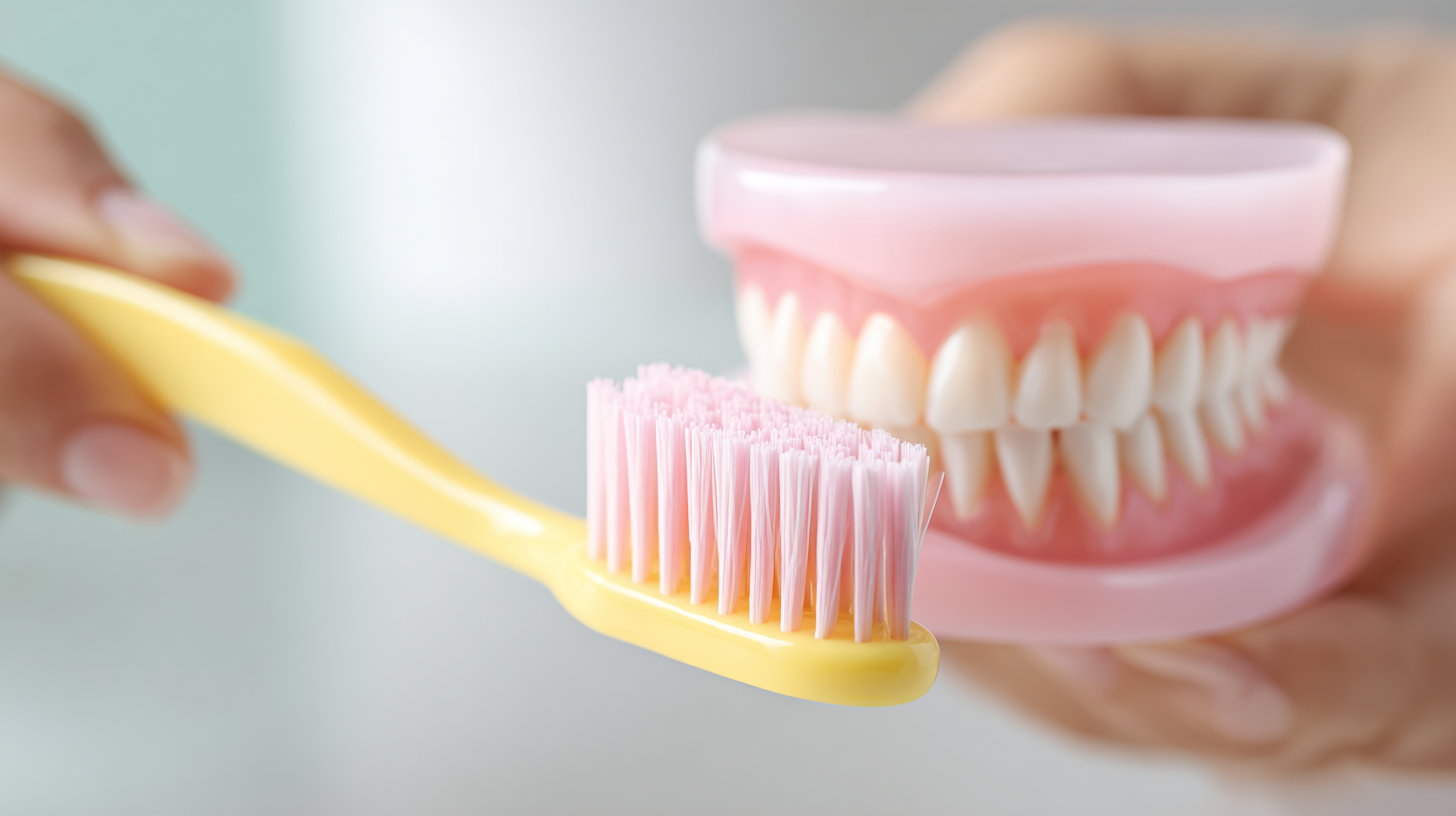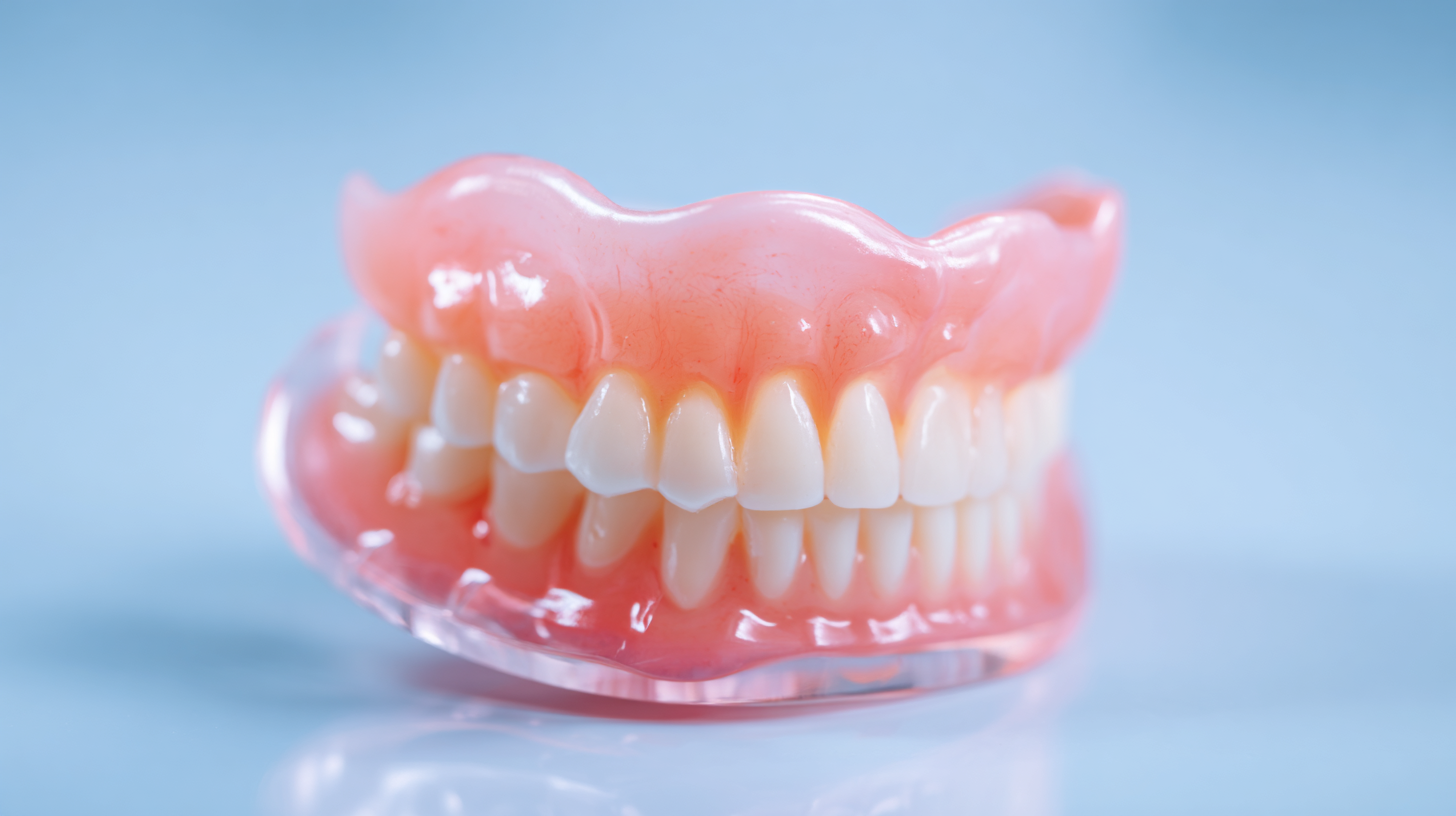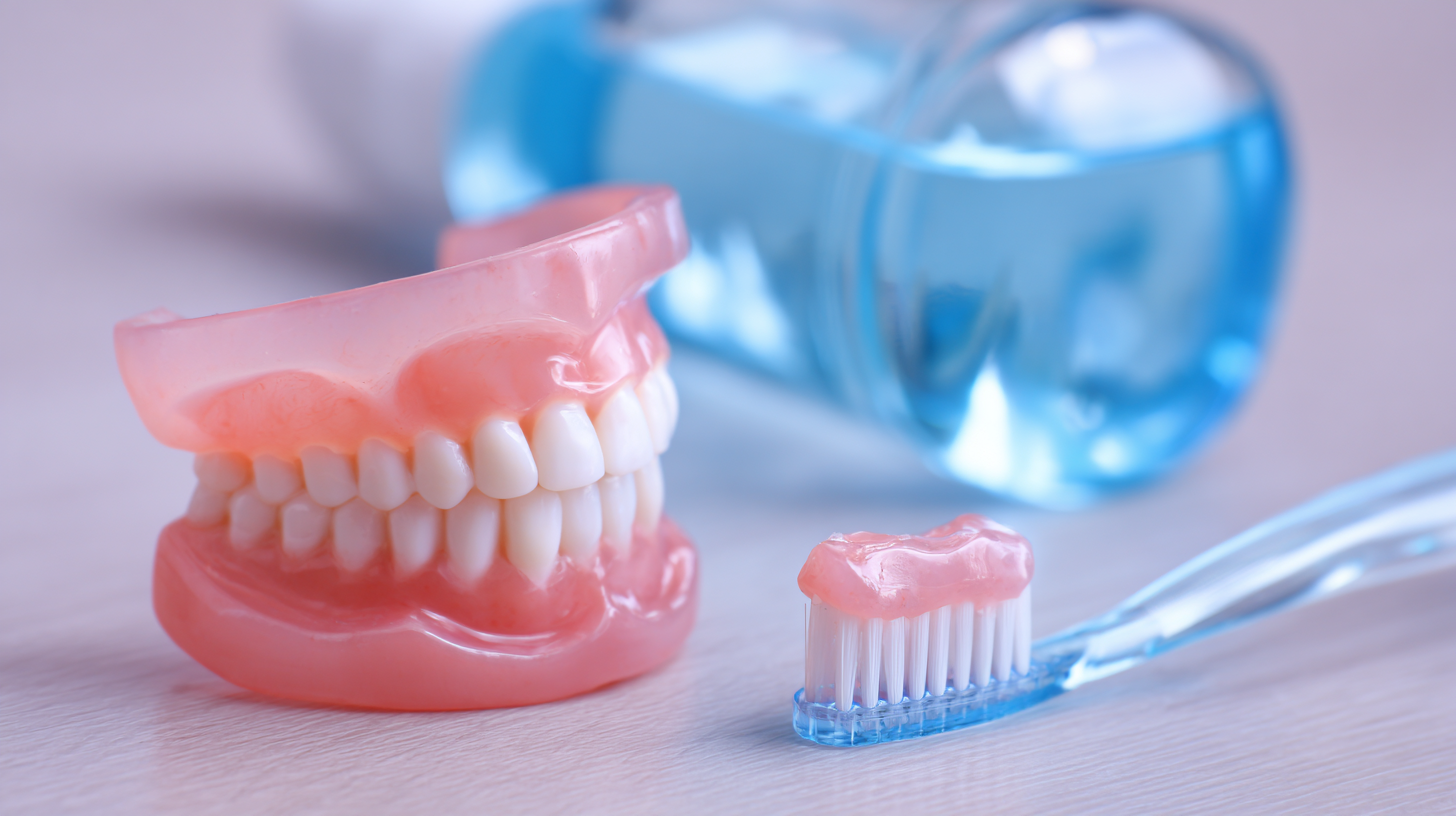Inquiry
Form loading...
-
Phone
-
E-mail
The importance of maintaining optimal oral health cannot be overstated, especially for those who rely on dentures. According to a report by the American Dental Association, approximately 47% of adults aged 30 and older show signs of gum disease, which can be exacerbated by poor denture hygiene. Proper cleaning is essential in preventing issues such as bacterial growth, bad breath, and infections. This is where a reliable Denture Cleaner comes into play. Research shows that using the right denture cleaning products not only improves the longevity of dentures but also significantly contributes to overall oral health.

With a myriad of options available in the market, understanding how to select the best denture cleaner tailored to your specific needs is crucial. This ultimate guide will delve into the various types of denture cleaners, their effectiveness, and tips for maintaining a healthy smile.
Maintaining optimal oral health is crucial for individuals wearing dentures, as improper cleaning can lead to serious dental issues. According to the American Dental Association, denture wearers are at a higher risk of developing gum disease, with studies showing that 60% of denture users experience some form of periodontal disease due to plaque accumulation. Thus, understanding the importance of denture cleaning is vital for maintaining not just the health of the gums, but also the overall oral ecosystem.
Regular and effective denture cleaning minimizes the risk of bacterial infections and reduces the likelihood of bad breath, which is often exacerbated by food particles trapped in the dentures. The Centers for Disease Control and Prevention (CDC) highlights that failing to clean dentures daily can lead to the growth of Candida, a fungus that can cause oral thrush in denture wearers. To combat these issues, it is essential to choose the right denture cleaner, whether it is a spray, tablet, or paste, ensuring that it effectively eliminates harmful bacteria while preserving the longevity of the dentures.
When choosing the best denture cleaners, it’s essential to focus on key features that enhance oral health and maintain the longevity of dentures. Effective denture cleaners should possess antibacterial properties to combat harmful bacteria, particularly for those who wear removable partial dentures (RPDs). A study highlights that regular hygiene practices can significantly decrease the incidence of denture stomatitis, a common condition among denture wearers. Additionally, the cleaner should be able to break down stubborn stains and eliminate odors, which not only improves the aesthetics of the dentures but also supports overall oral health.
Another important factor is the ease of use. Ultrasonic cleaners, for example, have gained popularity for their ability to clean intricate items effortlessly. They use high-frequency sound waves to create tiny bubbles that agitate the cleaning solution, penetrating hard-to-reach areas of the dentures. According to industry reports, ultrasonic cleaners are particularly effective for various dental appliances, including retainers and aligners. This versatility makes them a wise investment for individuals looking to optimize their denture cleaning routine. Overall, when selecting a denture cleaner, prioritize formulations that are user-friendly, effective, and backed by scientific insights to ensure comprehensive dental care.
When it comes to maintaining optimal oral health for denture wearers, choosing the right cleaner is paramount. The top five types of denture cleaners include enzyme cleaners, ultrasonic cleaners, peroxide-based cleaners, tablets, and homemade solutions, each with distinct advantages and disadvantages.
Enzyme cleaners, for example, are excellent at breaking down organic matter but may require longer soak times.
Ultrasonic cleaners, on the other hand, provide a deep clean using sound waves, though they can be an investment in terms of initial cost and maintenance.
Peroxide-based cleaners offer the added benefit of whitening dentures while effectively disinfecting.
However, they can sometimes cause irritation for sensitive gums.
Tablet cleaners are convenient and easy to use, dissolving in water to create a cleaning solution, but may lack the strength needed for tougher stains.
Finally, homemade solutions can be cost-effective and tailored to individual preferences, although it's crucial to ensure that the ingredients do not harm the dentures.
By weighing these pros and cons, denture wearers can find the best cleaning method suited to their needs, ensuring effective care and improved oral hygiene.
Properly using denture cleaners is essential for maintaining optimal oral health and prolonging the lifespan of your dentures. According to a study published in the Journal of Prosthodontics, improper cleaning can lead to a buildup of harmful bacteria and plaque, significantly increasing the risk of oral infections. To maximize the effectiveness of denture cleaners, it’s crucial to follow the manufacturer's instructions carefully. This typically includes soaking the dentures in a solution for a specified period and using a soft brush to remove any remaining food particles or stains.

Another important factor is the choice of cleaner. A report from the American Dental Association indicated that over 80% of denture wearers benefit from using enzymatic cleaners, which break down organic material effectively. While traditional methods like toothpaste or household soaps may seem convenient, they can be abrasive and may damage the denture material. Therefore, opting for a specialized denture cleaner designed to eliminate bacteria without harming the dentures is recommended for maintaining oral hygiene and promoting overall health.
When selecting a denture cleaner, many users overlook crucial aspects that can significantly impact their oral health. One common mistake is choosing products with harsh chemicals. According to a study published in the "Journal of Prosthodontics", cleaning solutions that contain bleach or strong detergents can degrade denture materials over time, leading to premature wear and discoloration. Opting for gentler, pH-balanced cleaners is vital for maintaining both the integrity of the dentures and the health of the gums.

Another frequent oversight is insufficient consideration of effectiveness. A survey conducted by the American Dental Association reported that only 30% of denture wearers are aware of the importance of antimicrobial properties in denture cleaners. Cleaners that specifically target bacteria, fungi, and biofilm provide not just a cleaner surface but also reduce the risk of oral infections. Therefore, it is essential to look for products that blend cleaning efficiency with safety, ensuring that they meet industry standards for denture care.
